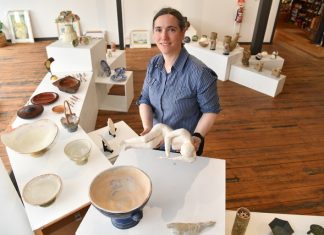Ahead of Shingles Awareness Week, new research commissioned has revealed that Australians aged 50-79, including those in Maribyrnong and Hobsons Bay, have limited understanding of shingles.
Shingles misconceptions and knowledge gaps have been identified through two surveys in Australia and globally by science-led global healthcare company GSK.
The survey shows that while 62 per cent of people perceive the impact of this disease as ‘extremely negative’, only 14 per cent believe they are extremely likely to be personally at risk of shingles in their lifetime.
Shingles can be a painful and potentially debilitating condition and about one in three people will develop it in their lifetime.
Shingles Awareness Week, February 26 to March 3, aims to increase understanding of the impact of shingles and address common misconceptions surrounding shingles.
Shingles is a viral infection that is caused by the reactivation of the varicella zoster virus, the same virus that causes chickenpox earlier in life.
Those who have had chickenpox already carry the virus that causes shingles and nearly all adults aged 50 years and older carry this inactive virus, with about one in three adults expected to develop shingles in their lifetime.
News presenter, media personality and campaign ambassador, Deborah Knight, shares her story to encourage Australians to understand their shingles risk.
Deborah knows first-hand the pain and impact of the disease after she had shingles in early 2022.
“It started with intense pain in my lower back, followed by a rash with sensitive blisters on my face. Shortly after these symptoms began, I saw my doctor who confirmed I had shingles,” said Deborah.
“I live a really active lifestyle, so it was confronting to need my husband and son to help me stand up due to the pain.”
“Before I was diagnosed, I didn’t know much about shingles and the impact it could have. I’d thought it was a disease that affected people much older than me.
“After experiencing it myself, I encourage all Australians aged 50 and over to speak to your doctor about your risk of shingles.”
Centre for Virus Research director and professor Tony Cunningham suggests Australians over the age of 50 consider their shingles risk and understand more about the disease.
“If you’ve had chickenpox the virus can remain in your body, kept dormant by your immune system,” he said.
“As you age, there is a decline in your immunity that can leave you susceptible to the reactivation of the virus, and if this occurs, reactivation of the virus leads to shingles.
“Shingles can be a painful disease that can impact your quality of life so being aware of the symptoms and not underestimating your risk is important.
“This Shingles Awareness Week discuss shingles with your doctor. Discuss it with your family, particularly with older members of your family who are more at risk and may not be aware of shingles.”
Details: knowshingles.com.au








